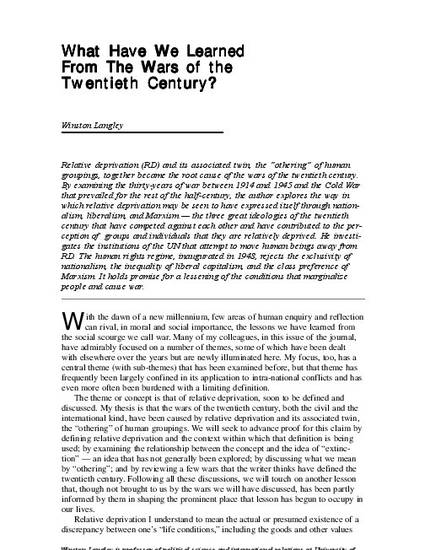
Relative deprivation (RD) and its associated twin, the “othering” of human groupings, together became the root cause of the wars of the twentieth century. By examining the thirty-years of war between 1914 and 1945 and the Cold War that prevailed for the rest of the half-century, the author explores the way in which relative deprivation may be seen to have expressed itself through nationalism, liberalism, and Marxism — the three great ideologies of the twentieth century that have competed against each other and have contributed to the perception of groups and individuals that they are relatively deprived. He investigates the institutions of the UN that attempt to move human beings away from RD. The human rights regime, inaugurated in 1948, rejects the exclusivity of nationalism, the inequality of liberal capitalism, and the class preference of Marxism. It holds promise for a lessening of the conditions that marginalize people and cause war.
Available at: http://works.bepress.com/winston_langley/1/
